- Beating OfferUp Scams: Best Practices
- How to Identify OfferUp Scams
- What to Do if You Fall for an OfferUp Scam
- Identify Common Scams on OfferUp
- Frequently Asked Questions
With over 45 million annual users, OfferUp is one of the top online marketplaces for local buyers and sellers. Its online payment system makes it a bit safer than Craigslist, but it does attract many scammers looking to prey on unsuspecting users. Here are some tips on how to beat and avoid OfferUp scams.
Beating OfferUp Scams: Best Practices
OfferUp can be a fun, engaging marketplace, whether you're hunting for deals on hard-to-find items, such as gaming consoles, furniture, or even a used car, or trying to earn extra funds for an upcoming vacation. While you're scrolling through item photos, keep an eye out for anything that seems suspicious or out of the ordinary—this is key to staying safe online.
Remember, you can be scammed both as a buyer and seller on OfferUp.
Keep All Communications Within the OfferUp App
If another user asks for your cell phone number or email address, decline and stop communicating with them.
Don't believe them if the buyer or seller claims they need this information to complete the transaction. Keep all of your communication within the app's messaging system.
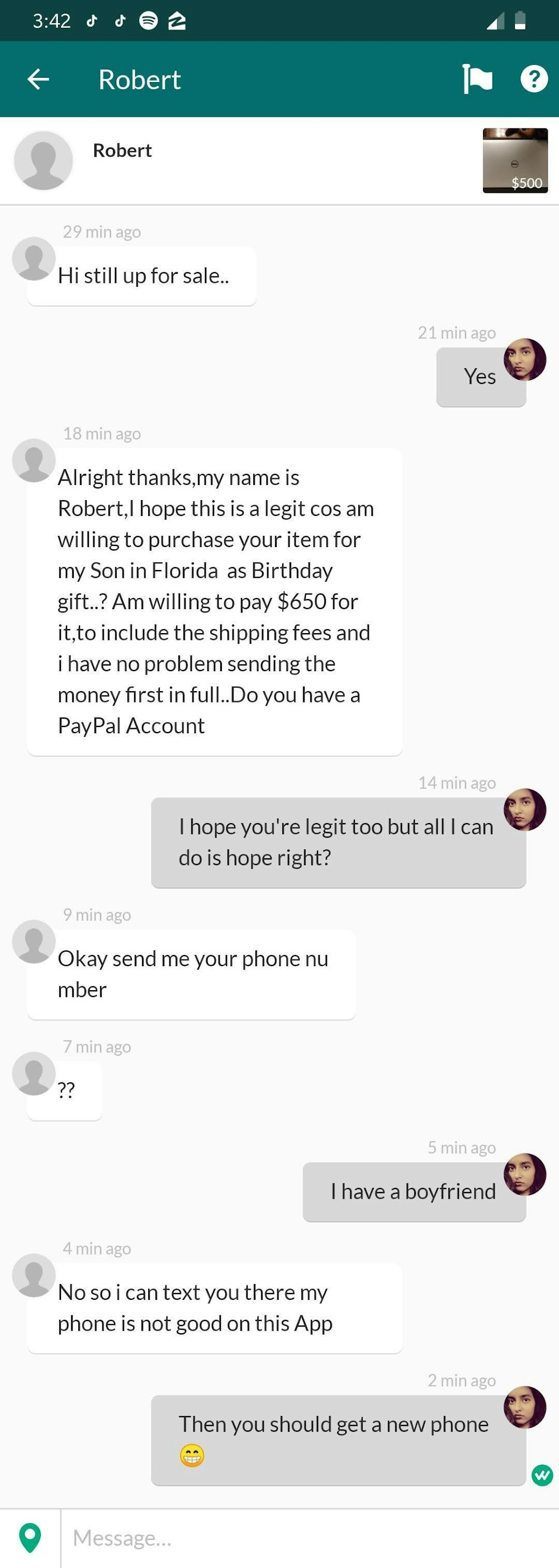
Stick to OfferUp Payment Methods
If an item needs to be shipped, OfferUp should be the only place where payments are processed. Do not accept cashier's checks, MoneyGram, Western Union, PayPal, Venmo, gift cards, or wire transfers. The money won't be traceable if you choose a different method, and it'll be more challenging to launch a fraud investigation outside of OfferUp.
Pay with Cash for In-Person Transactions
Cash is the safest payment method as long as you're accepting the item face-to-face and have time to inspect it beforehand to make sure it matches the description.
Research the Buyer or Seller
You can do this by checking their reviews on the app. Do they have multiple excellent reviews? If so, they are likely a legitimate user. Profiles without any reviews might be a red flag that you're dealing with OfferUp scammers. For additional peace of mind, Google the user to see if any complaints pop up.
Meet Up in a Public Place to Exchange Items
OfferUp includes a feature in its app called Community MeetUp Spots for in-person transactions. These are well-lit, recorded local businesses and police stations that OfferUp deemed the safest spots to meet someone to complete a sale.
To find a location in the OfferUp app, look for MeetUp spots, which will appear on the map as blue icons. When you choose a place that works for you, send it as a message in the chat to the other user.
Be on the Alert for Suspicious Messages
If it sounds too good to be true, like a get-rich-quick scheme, steer clear. It's most likely a scam. Also, do not click on any links sent from other users in the OfferUp chat feature. Block suspicious users and report the activity to OfferUp.
Don't Give Out Sensitive Information
If you complete your transaction and communications within the OfferUp app, you shouldn't need to provide the seller with any sensitive information, including your:
- Social Security number (SSN)
- Bank account information
- Two-factor verification code (or any verification codes)
How to Identify OfferUp Scams
There are so many scams that can happen on OfferUp, which always result in the same unpleasant outcome—a user being scammed out of their money. Fortunately, several red flags can alert you to an unscrupulous OfferUp user.
Here are the major red flags of an OfferUp scam:
- Buyers and sellers that ask to complete the payment transaction outside of the app with a cashier's check, electronic gift card, wire payment (e.g., Western Union), or a service like Venmo, Cash App, or PayPal.
- An offer from the seller to pay for shipping fees (although it may seem nice that they're willing to pay for shipping costs, this is a common sign of a scam)
- The seller wanting to send you an invoice.
- A buyer sending you more than the listed price.
- Request from a buyer to ship to a different address or use a different carrier.
- Receiving a link from another user that requires you to log in.
- The other user wants to communicate with you outside OfferUp's messaging platform.
- A user or post discussing an "investment opportunity" or an "easy way to make money," which typically asks you to pay a fee to participate.
- Personal hardship stories, giving reasons why they need to offload their item quickly, and pushing for a quick transaction.
- Inability or refusal to meet in person (even if they're buying or selling items locally).
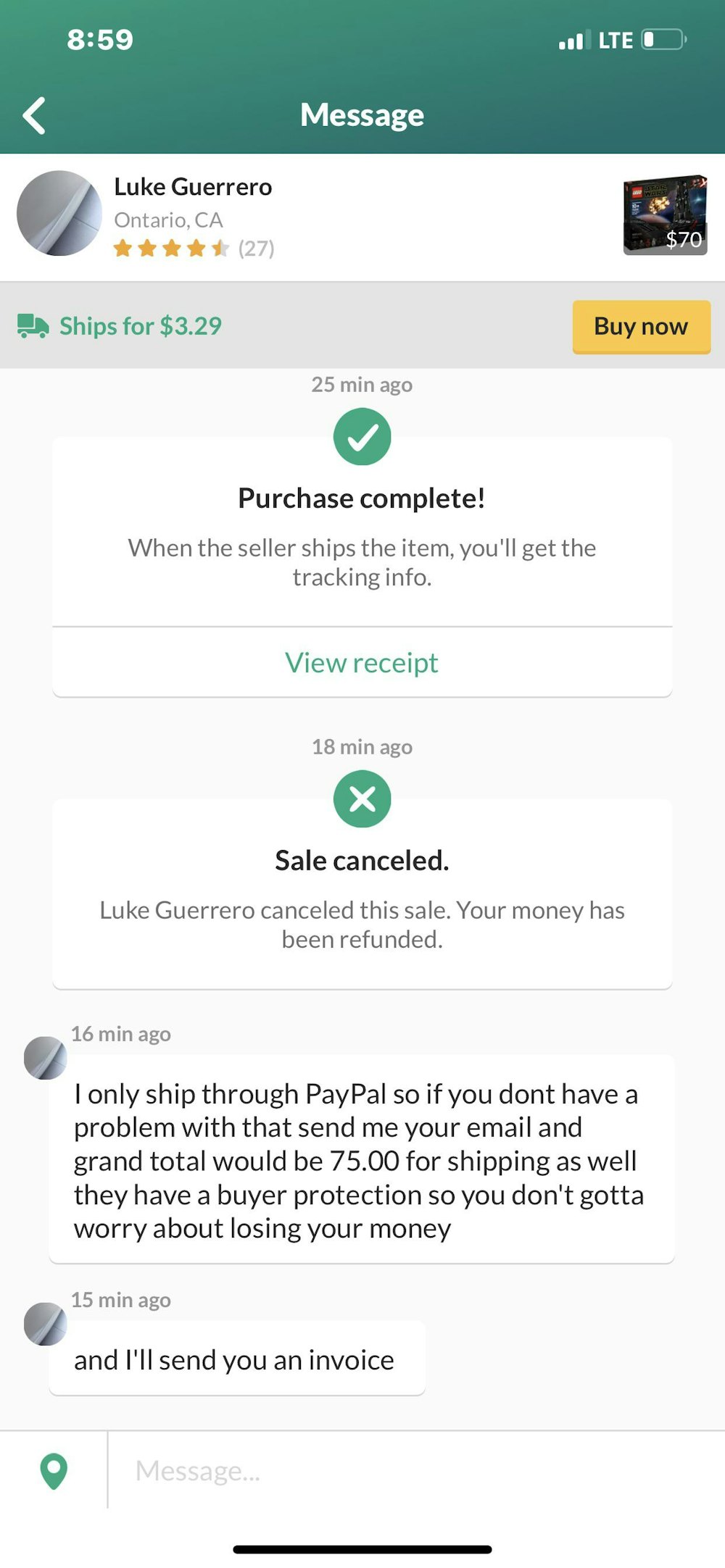
What to Do if You Fall for an OfferUp Scam
If you find yourself a victim of an OfferUp scam, take action. As long as you address the issue quickly, you might be able to get back the money you lost and prevent the same problem from happening to another OfferUp user.
Report the Scam to OfferUp
OfferUp encourages users to report fraudulent activity by clicking on the three dots in the upper right corner of the buyer or seller's profile on the OfferUp website.
You'll be able to describe exactly why you are reporting the person. OfferUp may follow up with you for additional information.
File a Purchase Protection Claim
Contact the seller through OfferUp to let them know about the discrepancy and request a refund. If they do not respond within two business days, click on the "Get help from OfferUp" button in your chat message.
Fill out the purchase protection claim form provided by OfferUp. OfferUp will then review your request to see if you qualify for a refund under their protection plan.
Contact Local Authorities
It's best to alert your local authorities of any OfferUp scams. They will likely want to see evidence, so take screenshots of the scammer's profile and any messages you've exchanged. You'll also need the agency case number or event ID, investigative officer name, and investigating officer contact information to share with OfferUp.
Report OfferUp Scams to the FTC
All matters of fraud, including scams on the OfferUp app, should be reported to the Federal Trade Commission (FTC) and the FBI's Internet Crime Complaint Center (IC3), which you can easily do online.
Get in Touch with Your Financial Institution
If any fraudulent payments already left your account and OfferUp's buyer protection wasn't able to help, contact your bank or credit card company to ask for the return of those funds.
Some credit cards offer more protection against fraud than others. When choosing a new credit card, always read their protection policies first to ensure your money is safe, and they will reimburse you if you've fallen victim to fraud.
Identify Common Scams on OfferUp
While there are many types of scams you'll come across on the OfferUp app you might encounter, here are the most common ones you'll find.
Overpayment Scams
This scam involves a buyer offering to send an additional amount for the item that the seller will need to wire to a third party on their behalf. Or the buyer will send you a check for the money that exceeds the purchase amount and then send you a frantic message asking you to return the overpayment immediately. After you return the funds, the original payment method fails.
Scams Involving Shipping
OfferUp scammers request that you ship an item to them, after which they'll inspect the item and then send payment. However, the payment never shows up. Or, in the opposite scenario, the scammer pays in advance and then reverses the charge after receiving the item, claiming they received an empty box.
Even if the seller claims they sent the item, it's the scammer's word against theirs.
Counterfeit Checks
Another one of the most common scams on OfferUp involved fake checks. Scammers offer to pay for expensive items, such as cars or furniture, using a check. On the day of the transaction, they hand over a check, money order, or cashier's check.
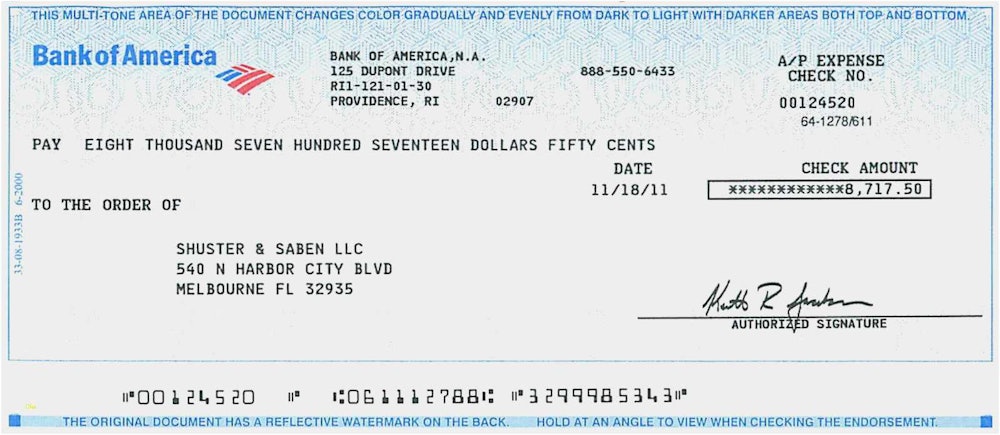
Unfortunately, the check turns out to be fraudulent, which a seller would only learn after attempting to cash it—and after the buyer has picked up the item.

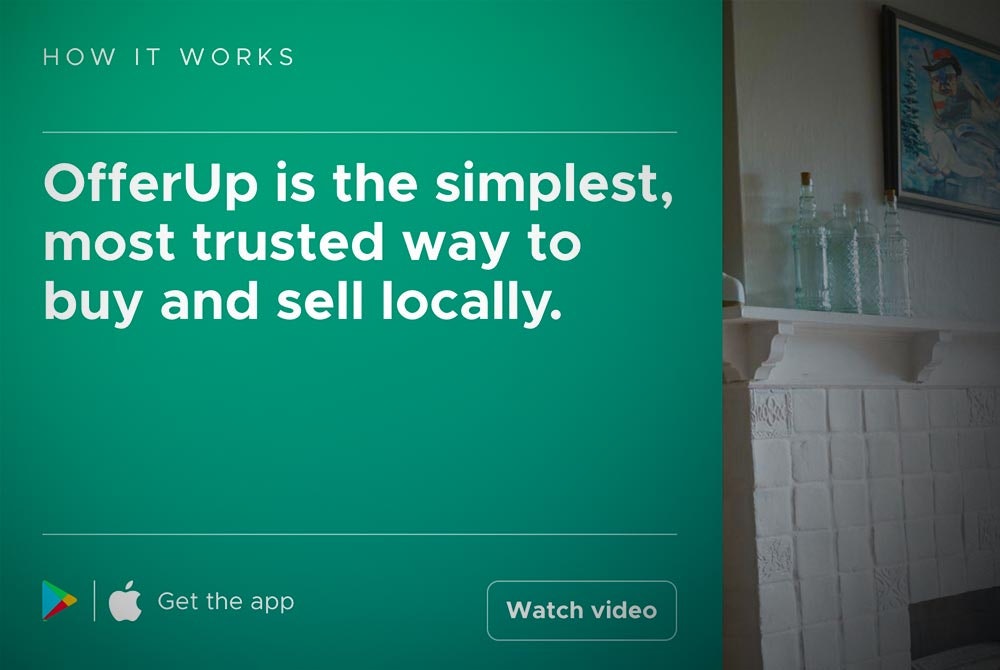
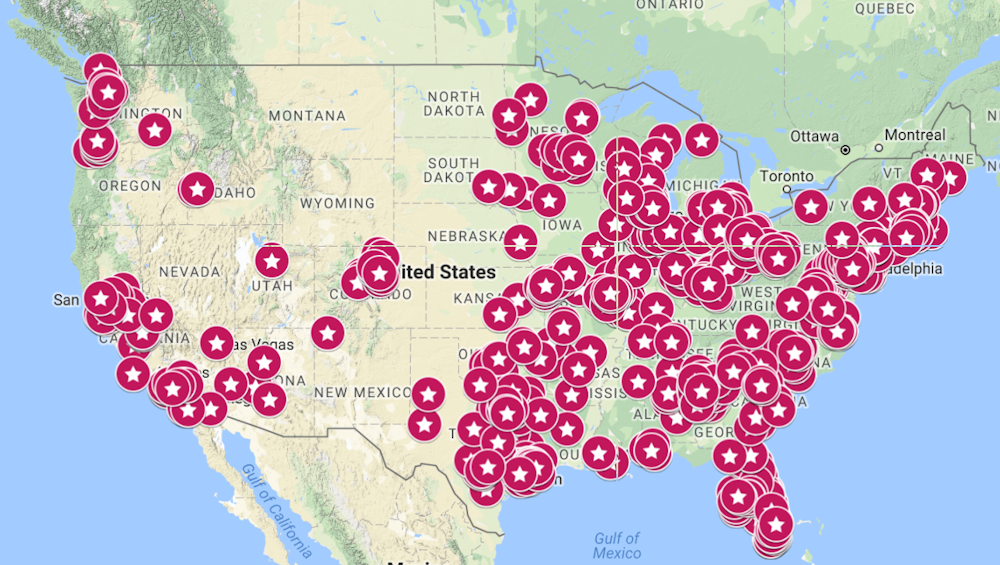
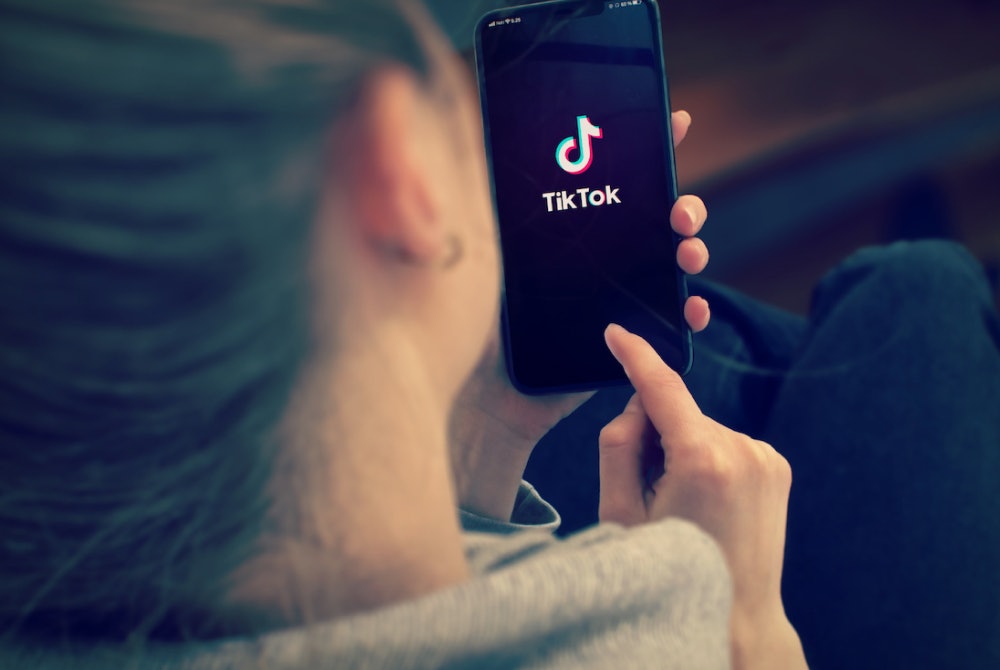

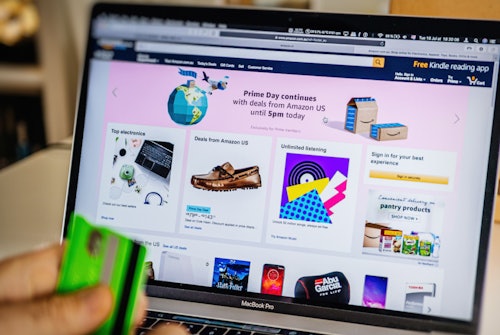






Comments